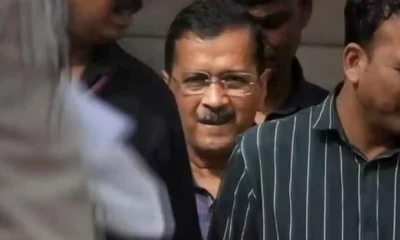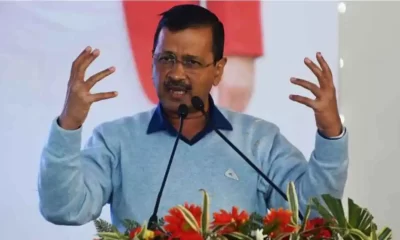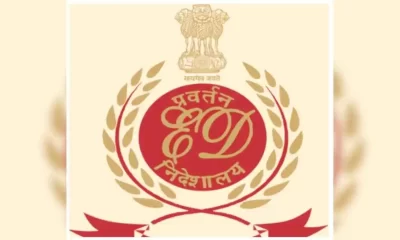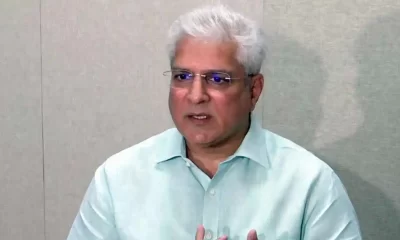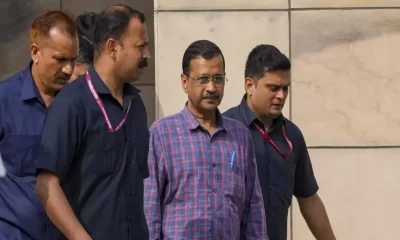India News
ED asks Delhi High Court for Robert Vadra’s custodial interrogation
The Enforcement Directorate asked the Delhi High Court for Robert Vadra’s custodial interrogation, saying this was needed as money chain was directly linked to him.

The Enforcement Directorate (ED) today – Thursday, Sep 26 – asked the Delhi High Court for Robert Vadra’s custodial interrogation, saying this was needed as “money chain” was directly linked to him.
The agency also claimed before Justice Chandra Shekhar that Vadra, son-in-law of Congress chief Sonia Gandhi, was not cooperating with the investigation in the money laundering case against him.
Vadra is facing allegations of money laundering in the purchase of a London-based property at 12, Bryanston Square worth 1.9 million pounds (over Rs 17 crore). Robert Vadra has also been battling allegations of shadowy land deals in Haryana and Rajasthan.
Denying ED’s claims, Vadra’s lawyer said his client has cooperated in the investigation by appearing before the agency whenever he was summoned.
The lawyer also said his client answered the questions put to him by the ED. “Not confessing” to allegations against him does not mean he was not cooperating, he said. After hearing the brief arguments, the court listed the matter for final arguments on November 5.
The court was hearing ED’s plea challenging the anticipatory bail granted to Vadra by a trial court.
On Tuesday, Vadra opposed ED’s plea saying there was no single instance of his non-cooperation in the investigation and there was no risk of him tampering with any evidence as the agency had already seized from him every document pertaining to the case.
The ED was conducting a “fishing and roving enquiry” and has no material to support the allegations made against him, he claimed. The probe agency sought the cancellation of Vadra’s anticipatory bail on the ground that it required his custody as he was not cooperating in the investigation.
Regarding the allegation of flight risk, Vadra said in his reply, “The conduct of the respondent (Vadra) in returning to India from abroad voluntarily upon reading press reports that ED was investigating him made it abundantly clear that Vadra had no intention of whatsoever of fleeing the country and was determined to stay in India and clear the name.”
The response added that Vadra has volunteered to appear before the probe agency even though he was yet to receive summons from them.
No specific allegation has been made by the agency to suggest that Vadra has in any way attempted to or actually succeeded in tampering with any evidence or witness, it said.
“Vadra has no properties outside India whatsoever nor does he have any beneficial ownership of any property outside India,” the reply had claimed. It added that Vadra has never received any ‘kickback’ for any ‘deal’ and any allegations of this nature are completely false.
It claimed that the sole purpose of the agency is to cause prejudice in the mind of court and the public against Vadra.
Granting anticipatory bail to Vadra, the trial court had directed him not to leave the country without prior permission and also to join the probe as and when called by the investigating officer.
Robert Vadra was directed on April 1 to not leave the country without permission by the Delhi court which had granted him conditional anticipatory bail.
India News
Salman Khan house firing case: NIA interrogates arrested shooters Sagar Pal, Vicky Gupta for three hours
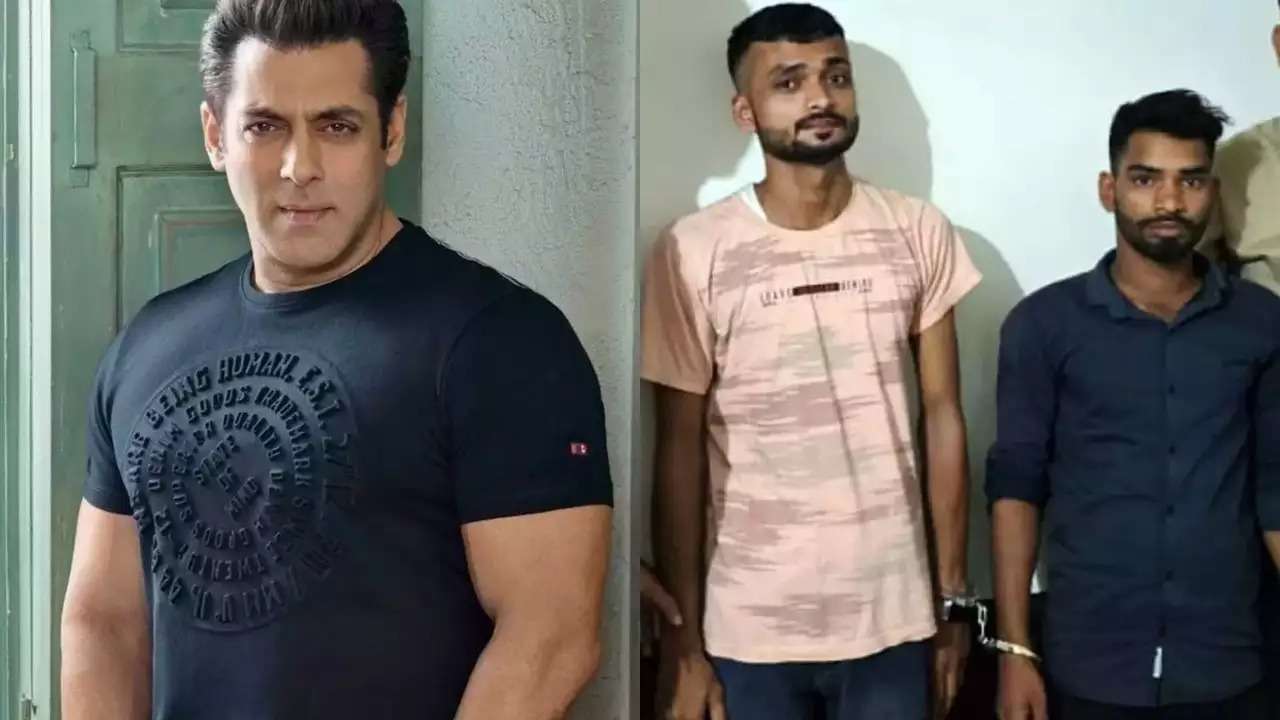
The investigation into the shocking firing incident that took place outside Salman Khan’s house on April 14 keeps bringing new updates with every passing day. In this case, Sagar Pal and Vicky Gupta, the two suspected shooters, have already been taken into custody.
The two shooters have reportedly been questioned by the National Investigation Agency (NIA), according to a new development. Every day that goes by, more information is revealed about the inquiry into the shocking firing incident that happened outside Salman Khan’s house on April 14. Sagar Pal and Vicky Gupta, the two accused shooters, are being held in custody after their first arrests.
It was recently discovered that the two shooters were questioned by the National Investigation Agency (NIA).
NIA has reportedly begun questioning Sagar Pal and Vicky Gupta, who were detained a few days ago for firing openly outside Salman Khan’s Galaxy Apartments in Mumbai, according to a recent update posted on their X (Twitter) account. NIA has interrogated shooters Vicky Gupta and Sagar Pal, arrested in the firing case, the tweet said.
According to the reports, two Punjabi residents were taken into custody by the Mumbai Crime Branch yesterday on suspicion of being involved in the recent shooting incident outside the house of Bollywood actor Salman Khan.
The two men, Sonu Subhash Chander and Anuj Thapan, provided guns to Sagar Pal and Vicky Gupta, the shooters, according to information released by the Mumbai Crime Branch. It was also reported that they had communication with the Bishnoi gang. For those who don’t know, hours after the incident, Anmol Bishnoi, the brother of gangster Lawrence Bishnoi, allegedly took credit for the firing in a Facebook post.
The shooters’ custody has been extended by Mumbai’s Esplanade Court until April 29.
Meanwhile, on the workfront Salman Khan was last seen in Tiger 3 alongside Katrina Kaif.
2024 Lok Sabha Elections
PM Modi calls for high voter turnout in second phase of Lok Sabha elections 2024, says your vote is your voice
Prime Minister Narendra Modi urges citizens to participate in record numbers during the second phase of polling for the Lok Sabha Elections 2024.
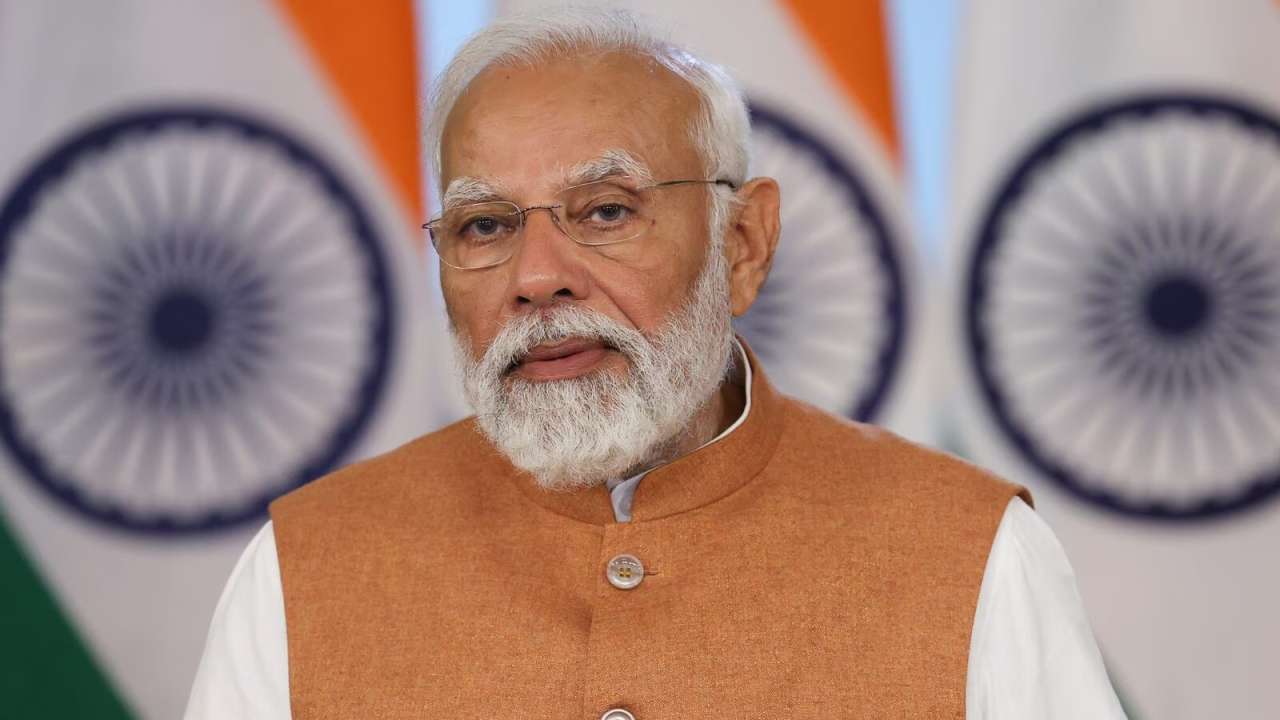
Prime Minister Narendra Modi took to social media as the second phase of voting for the Lok Sabha Elections of 2024 got underway across the country to encourage voters to cast votes in huge numbers. PM Modi emphasized in his speech the value of voting in preserving democracy and notably urged women and young people to cast votes.
Taking to social media X, formerly Twitter, PM Modi wrote, urging everyone in constituencies to participate in record numbers in today’s second phase of the Lok Sabha elections. He said our democracy is strengthened by high voter turnout. He especially urged female and youth voters to cast votes in large numbers. Your vote is your voice, he added.
It is important to remember that 88 Lok Sabha constituencies—spread among 13 states and Union Territories—are presently holding polls. Twenty seats in Kerala, fourteen in Karnataka, thirteen in Rajasthan, eight in Uttar Pradesh and Maharashtra, six in Madhya Pradesh, five in Assam and Bihar, three in Chhattisgarh and West Bengal, and one in each of Tripura, Jammu & Kashmir, and Manipur are currently up for election. Notably, the untimely death of a Bahujan Samaj Party (BSP) candidate has resulted in the Madhya Pradesh constituency of Betul being spared from voting on April 26.
Meanwhile, Chief Election Commissioner Rajiv Kumar emphasized the thorough planning that has taken place over the previous two years and reassured the public of careful security measures at every voting place. They have been preparing for the last two years, he said. At each booth, the arrangements are ready. Everything has been prepared for the voters, including fans and drinking water. Voters must turn out to cast their votes. Safety has been considered. There is zero information available anywhere regarding violence. However, there will be forces at every booth.
2024 Lok Sabha Elections
Bollywood actor Neha Sharma campaigns for her father Ajit Sharma in Bhagalpur, Bihar
The Bollywood actor posted a video on her Instagram handle which showed her journey through various districts of Bihar, including Kishanganj, Banka, Purnea and Katihar. She was dressed in a traditional salwar kameez and was seen greeting and encouraging the public to cast their votes.
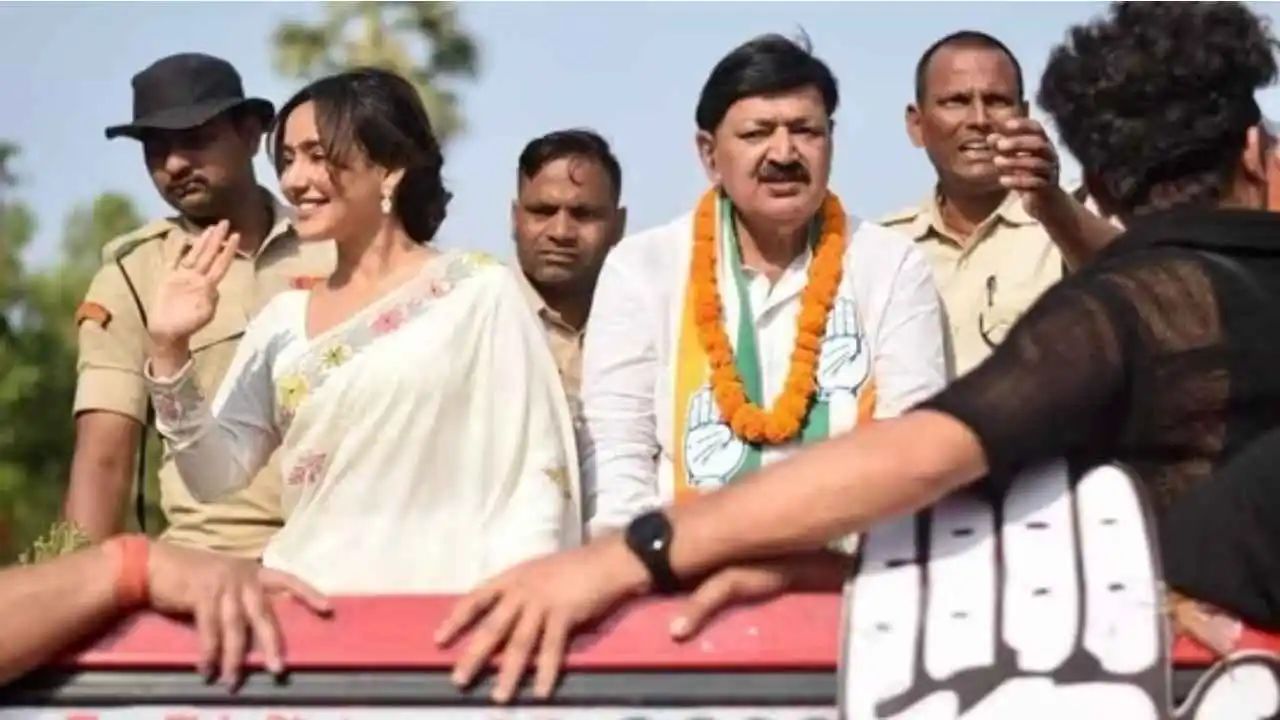
Bollywood actor Neha Sharma’s recent participation in a roadshow in Bihar has taken the internet by storm. Sharma, known for her roles in films like Tum Bin 2 and Crook, was seen supporting her father, Ajit Sharma, who is contesting from Bhagalpur Lok Sabha seat on a Congress ticket. The roadshow came amid speculations that the actor might enter politics. But, it is now clear that she was just campaigning for her father.
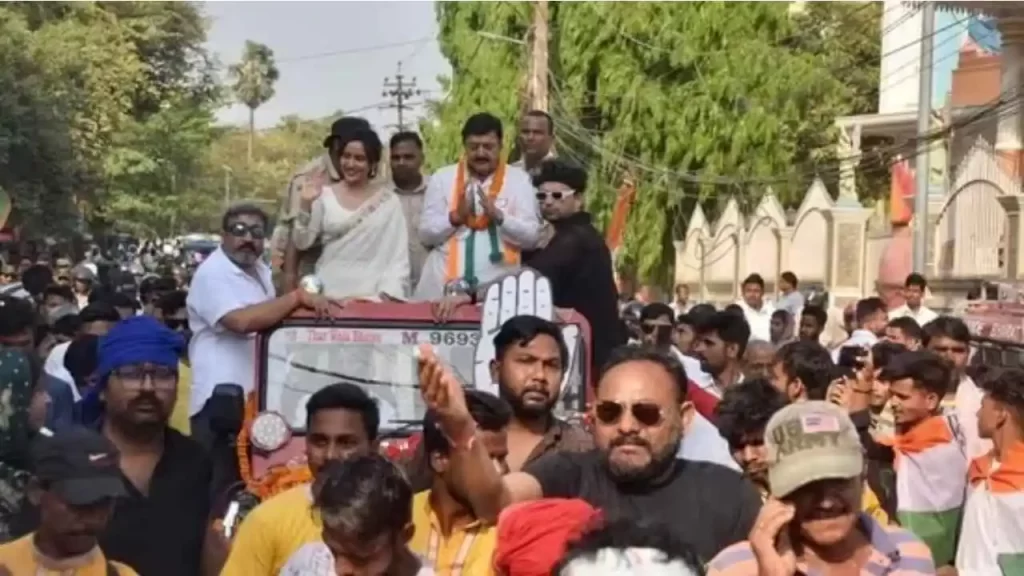
The Bollywood actor posted a video on her Instagram handle which showed her journey through various districts of Bihar, including Kishanganj, Banka, Purnea and Katihar. She was dressed in a traditional salwar kameez and was seen greeting and encouraging the public to cast their votes.
The actor received a warm reception and love from a large crowd in Pirpainti and Kahalgaon during her roadshow. She wrote on Instagram that it is said when someone gives one a place in their heart, then they live there forever. She said her heart is full of all the love and support she was receiving from the people. She thanked the people for the warm welcome she got in Pirpainti and Kahalgaon. Aapka pyar sar ankhon par.
Another video, circulating on social media showed the actor actively participating in her father’s election campaign in Bhagalpur. The election to the Bhagalpur Lok Sabha seat is set to take place in the 2nd phase on April 26. Ajit Sharma is representing the Congress and is up against JDU’s Ajay Kumar Mandal in this seat.
Earlier, there had been rumours and speculations that Neha Sharma might join politics. But many reports have clarified that she is not making her political debut yet. The Bollywood actor had been offered the opportunity to join politics by her father Ajjit Sharma but she is currently focusing on her acting career.
-

 Cricket news19 hours ago
Cricket news19 hours agoTelugu superstar Mahesh Babu meets SRH captain Pat Cummins, says it is an absolute honour
-
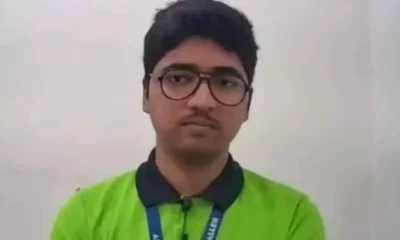
 Education24 hours ago
Education24 hours agoFarmer’s son Nilkrishna Gajare Nirmalkumar from Maharashtra scores 100 NTA score in IIT-JEE Mains 2024
-

 Entertainment22 hours ago
Entertainment22 hours agoAamir Khan to begin shooting in Delhi for Sitaare Zameen Par next month
-
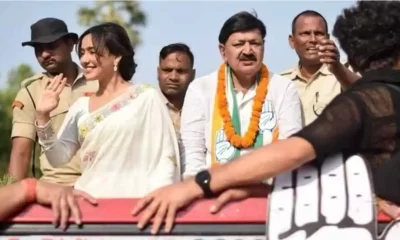
 2024 Lok Sabha Elections22 hours ago
2024 Lok Sabha Elections22 hours agoBollywood actor Neha Sharma campaigns for her father Ajit Sharma in Bhagalpur, Bihar
-

 Cricket news20 hours ago
Cricket news20 hours agoAB De Villiers criticizes RCB’s decision to let go Yuzvendra Chahal, says it was a hearbreaking moment
-
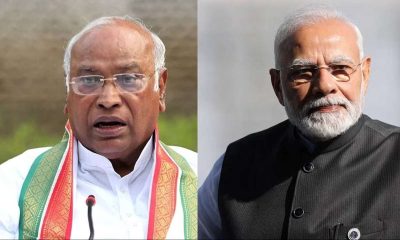
 2024 Lok Sabha Elections19 hours ago
2024 Lok Sabha Elections19 hours agoMallikarjun Kharge writes to PM Modi seeks time to explain Congress’s Nyay Patra
-
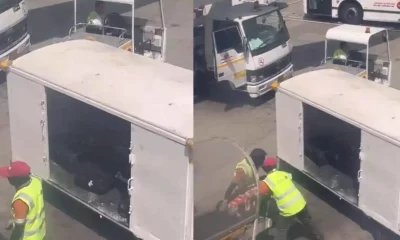
 Trending18 hours ago
Trending18 hours agoSocial media user shares video of Air India ground staff throwing expensive musical instruments, video goes viral
-
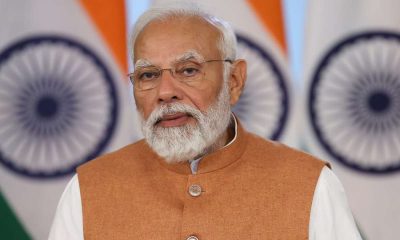
 2024 Lok Sabha Elections2 hours ago
2024 Lok Sabha Elections2 hours agoPM Modi calls for high voter turnout in second phase of Lok Sabha elections 2024, says your vote is your voice

